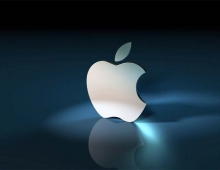
New French Law Attacks All Technology Innovators: US Group
A US technology association has labeled a new French law requiring "interoperability" of devices like Apple's iPod music player as "attack on intellectual property rights" of all companies.
Americans for Technology Leadership, a group that includes major US firms like Microsoft, said the new law approved by France's Parliament remains troublesome despite the last-minute modifications.
"The final vote today by French lawmakers on legislation that would force Apple to open its iTunes product to competitors devices is an attack on intellectual property rights not just of Apple but all companies," the organization said in a statement Friday.
"While the final version is slightly less severe than the earlier draft, it still illustrates France's complete disregard for intellectual property," said Jim Prendergast, the group's executive director.
"Government-led theft of intellectual property is wrong, whether we're talking about iTunes or Champagne."
The new law was drafted initially to conform with EU directives on copyright protection of online works. It also includes language that could require Apple to open its popular iTunes Music Store to companies producing rival digital music players to its iPods.
But, in a concession to months of fierce lobbying by Apple, the law also contains a loophole that will allow the US technology company to demand the right to maintain software blocks against competitors.
Apple, which wants to ensure that only iPods can play music bought from the iTunes online store, called the French text "state-sponsored piracy" and hinted it might withdraw from the French market.
Subsequently, amendments were added to the French bill to create a special independent authority that would decide when "interoperability" should apply.
Prendergast said the French law could set a bad precedent that chills technological innovation.
"Already we have seen other European countries attempt to regulate Apple in the same way the French lawmakers originally proposed," he said.
"Once government regulators take away a company's intellectual property rights and dictate that they must allow competitors to benefit from their creations, they break the cycle of innovation that benefits consumers by destroying the incentive companies have to create new and better products."
"The final vote today by French lawmakers on legislation that would force Apple to open its iTunes product to competitors devices is an attack on intellectual property rights not just of Apple but all companies," the organization said in a statement Friday.
"While the final version is slightly less severe than the earlier draft, it still illustrates France's complete disregard for intellectual property," said Jim Prendergast, the group's executive director.
"Government-led theft of intellectual property is wrong, whether we're talking about iTunes or Champagne."
The new law was drafted initially to conform with EU directives on copyright protection of online works. It also includes language that could require Apple to open its popular iTunes Music Store to companies producing rival digital music players to its iPods.
But, in a concession to months of fierce lobbying by Apple, the law also contains a loophole that will allow the US technology company to demand the right to maintain software blocks against competitors.
Apple, which wants to ensure that only iPods can play music bought from the iTunes online store, called the French text "state-sponsored piracy" and hinted it might withdraw from the French market.
Subsequently, amendments were added to the French bill to create a special independent authority that would decide when "interoperability" should apply.
Prendergast said the French law could set a bad precedent that chills technological innovation.
"Already we have seen other European countries attempt to regulate Apple in the same way the French lawmakers originally proposed," he said.
"Once government regulators take away a company's intellectual property rights and dictate that they must allow competitors to benefit from their creations, they break the cycle of innovation that benefits consumers by destroying the incentive companies have to create new and better products."




















